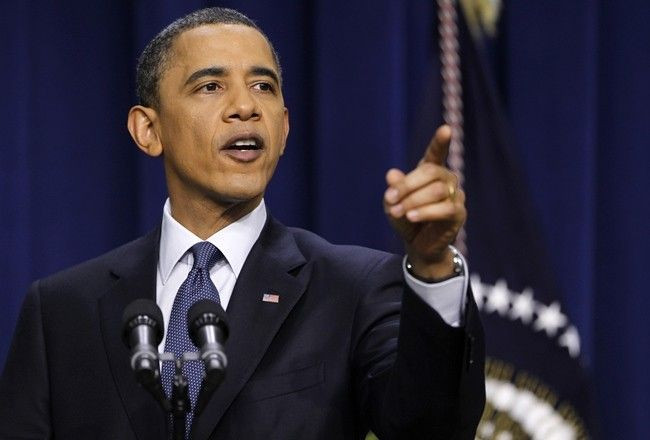Obama's Libya Speech Called Ambitious, Vague, Encouraging to Gaddafi

Reactions to President Barack Obama's speech on Monday varied broadly, from supporters calling it ambitious to concern that it was too vague, not clearly outlining when U.S. military force would be used in the future.
----
Sen. John McCain rejected Obama's argument in the speech that real leadership by the U.S. requires working with allies and partners. He called doing so a luxury the U.S. does not always have. Obama also said later there could be a time when the U.S. would act unilaterally.
If we tell Gaddafi 'Don't worry you're going not going to be removed by force,' I think that's very encouraging to Gaddafi, McCain told CNN. There are times when we have to act alone.
Rep. Denis Kucinich, D-OH on MSNBC also criticized Obama, comparing him to former President George W. Bush.
This is a new Obama doctrine, which is that you act on threats. Remember, that's what George Bush did. He said Iraq had weapons of mass destruction. So here we are, $3 trillion later for the long term cost of the war, deaths of thousands of troops, deaths to millions of Iraqis, civilians died as a result of the conflict, and we've got to be careful about slipping into these wars.
Steve Holland of Reuters said a nagging question remained: How long will U.S. forces be involved there.
Michael Crowley of Time.com said the speech managed to offer both an unexpectedly ambitious vision for America's global role--but also a frustrating lack of clarity on the road ahead in Libya.
Marc Ambinder of the Atlantic said: It's telling that Obama was deliberately vague at other times. For instance, he said that the handoff of control of the operation to NATO would cut costs for the United States but he never said by how much.
The New York Times wrote in an editorial:
On Monday night, the president spoke to the nation and made a strong case for why America needed to intervene in this fight - and why that did not always mean it should intervene in others.
Eugene Robinson of the Washington Post said that after Obama's monday speech The Obama Doctrine's outlines are clear, but the details are hard to make out.
MJ Lee of Politico said Obama mentioned Gaddafi 25 times by name compared to a speech on Libya a month ago when Obama did not mention the leader's name once.
Mitchell Reiss of Fox News Obama and his critics both miss the larger point that Libya is strategically irrelevant.
He said Egypt matters in a away that Libya, or any other Arab state, does not. If Egypt succeeds as a democratic and prosperous society, its example will have a ripple effect across the entire region.
© Copyright IBTimes 2024. All rights reserved.





















